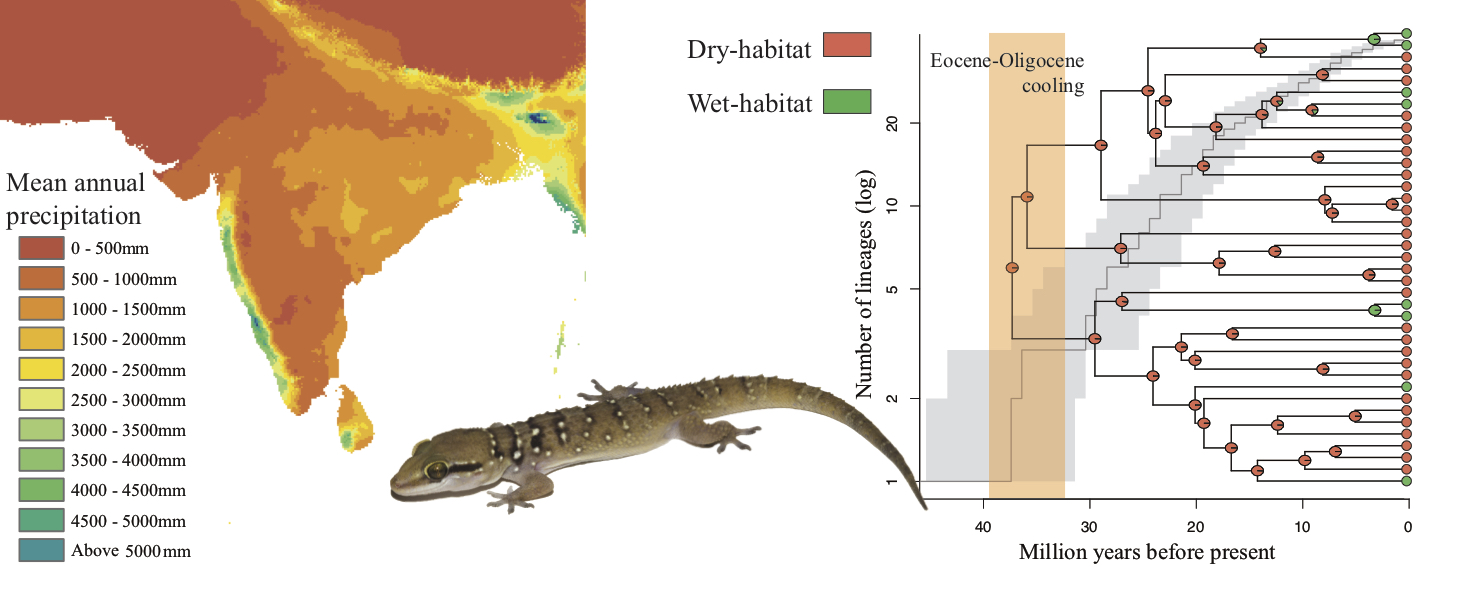New publication: Past climate change and the diversification of geckos from Peninsular India.
Tue, 2019-10-22 14:21
Around 33.5 million years ago, during the Eocene–Oligocene period, there was an abrupt shift towards a cooler drier climate. This resulted in a corresponding shift in biological diversity globally. In Peninsular India, the study of fossil pollens suggests a shift from wet rainforest vegetation to dry and seasonal species during this period. However, the grassland and open habitats that dominate the region today expanded relatively recently as a result of the Late Miocene aridification ~ 11 million years ago. In this study, we test the role of these climatic shifts in generating the dry habitat diversity of Hemidactylus geckos that are predominantly distributed dry habitats, with some a few species also found in the wet habitats of Western Ghats.
Using molecular data from nearly all species of Hemidactylus geckos, we construct a time-calibrated phylogeny. We use ancestral state reconstruction to investigate whether the ancestor of these geckos was a wet habitat or a dry habitat species, and when did the switch between these habitats occur.
Results show that the ancestor of these geckos was a dry habitat lineage. The initial diversification of this dry habitat lineage not only overlaps with the Eocene-Oligocene cooling but also resulted in an early increase in diversification rate. These results show that the dry habitat diversity of Hemidactylus was likely to be a result of Eocene-Oligocene cooling. Moreover, the prevalence and long persistence of arid ecosystems in Peninsular India ~ 33.5 million years ago can be inferred from these results.
Citation: Lajmi, A., & Karanth, P. K. (2019). Eocene–Oligocene cooling and the diversification of Hemidactylus geckos in Peninsular India. Molecular phylogenetics and evolution, 106637.
Link to publication: https://www.sciencedirect.com/science/article/pii/S1055790319300156

Add new comment